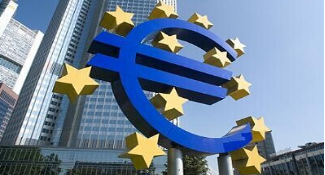OPEC+ continues to hold on to small output increase despite EU consideration of Russian oil embargo
As the European Union considers a ban on imports of Russian oil, tightening global markets, OPEC and its allies have again approved a small increase in monthly output. OPEC+ again decided at a brief meeting on Thursday to increase output in June by just 432,000 bpd, according to representatives of the OPEC+ alliance. Analysts are skeptical that the target can be achieved as most of the group's member countries face capacity constraints. "OPEC's steady increase in production since mid-2021 appears to have lost steam," Bill Farren-Price, director of Enverus Intelligence Research, said ahead of Thursday's meeting. "As sanctions on Russia mount, and supply risks are rising, the group's ability to stabilize oil prices is disappearing."
Institutional Analysis: U.S. productivity falls as output falls while labor costs jump
U.S. productivity fell in the first quarter as the economy shrank, while labor costs soared, signaling an extremely tight job market. The U.S. economy contracted in the first quarter for the first time since 2020, largely as the trade deficit widened as businesses imported more goods and services to support strong consumer demand. The slowdown has weighed down the government's productivity growth measures.
Russian media: Slovakia disagrees with Russia's oil ban, the country's officials warn that the proposed ban will destroy the European economy
According to a report by "Russia Today" (RT) on the 5th, Slovakia said on the 4th that the country would not be able to agree to the European Commission's proposal to impose a ban on Russian oil, and called for more time to find alternative fuel suppliers. Slovakia's Deputy Economy Minister Karol Galek has warned that the proposed ban on Russian oil will destroy the European economy. According to the report, EU member states will gradually stop importing crude oil from Russia within six months and stop importing refined oil from Russia by the end of this year under the embargo sanctions proposed by the European Commission. Hungary and Slovakia, which are highly dependent on Russian oil, will get a longer transition period to keep buying Russian oil until the end of 2023.
European economy has come to a standstill, ECB officials warn
Stalling growth in the euro zone complicates the options facing the ECB, with monetary tightening aimed at containing inflation ultimately hampering already weak growth. Affected by inflationary pressures and disruptions to the global supply chain brought about by the conflict between Russia and Ukraine, German factory orders fell sharply in March from the previous month, far exceeding market expectations; the conflict between Russia and Ukraine cast a shadow over the European economic outlook. Market analysis believes that the escalation of sanctions against Russia by Western countries may lead to a shortage of natural gas, which will severely hit the industry and further increase energy prices, thereby eroding household income and weakening consumer confidence. Stalling growth in the euro zone complicates the ECB's options, with monetary tightening aimed at curbing inflation ultimately hampering already weak growth.
HSBC Asset Management: Subsequent inflation cooling and economic impact will make the Bank of England cautious
The Bank of England raised interest rates by 25 basis points to 1%, reflecting the challenges posed by slowing economic growth and rising inflation. Three policymakers favored a 50 basis point hike. Hussain Mehdi, macro and investment strategist at HSBC Asset Management, said: "With inflation set to remain elevated for a longer period in 2022, the monetary policy committee's tightening policy remains on autopilot and there are fears of a second round of inflation from a tight labor market. Cooling inflation later in the year and the impact on the economy of a sharp drop in household incomes could eventually prompt the Bank of England to take a more cautious approach, he said.
As the Fed pushes to shrink its balance sheet, the U.S. Treasury Department decides to continue to cut the size of its quarterly bond issuance
The U.S. Treasury Department trimmed the size of its quarterly auction of long-term Treasury securities for the third time in a row and unexpectedly hinted that further reductions may be possible, calling federal tax revenue "strong." Traders had widely expected a decline in the size of next week's bill and bond auctions, but believed it could be the last cut before the Fed shrinks its $5.8 trillion Treasury holdings. The Fed's quantitative tightening plan, announced in the early hours of Thursday's resolution, is expected to force the Treasury Department to sell more bonds to the public; the U.S. Treasury Department has been cutting auctions by record levels that were supposed to be for the government. Increased spending on anti-epidemic measures provides what is needed. Today, the economic recovery has boosted federal tax revenue. Treasury officials said Wednesday that the improvement in Treasury financing has been more than enough to offset a potential increase in demand from the Federal Reserve's removal of Treasuries from its balance sheet. They noted that traders' forecasts submitted to the Treasury prior to the refinancing did not detail the massive tax inflows over the past few weeks.
Bank of England hikes rates by 25 basis points
The Bank of England raised interest rates by 25 basis points as scheduled, and the decision makers unanimously supported the rate hike (the market had expected some people to disapprove of interest rate hikes), but the Bank of England decided to look down on the future economic prospects. The Governor of the Bank of England, Bailey, held a press conference to acknowledge the recent inflation The rate is much higher than the target, but it believes that monetary policy must balance inflation control and economic protection, suggesting that more aggressive rate hikes are unlikely. The Bank of England lowered its inflation forecast for the next two years, but significantly raised its inflation forecast for one year. At the subsequent press conference, Bank of England Governor Bailey emphasized the potential impact of the Russian-Ukrainian conflict on global economic growth prospects and the UK economic outlook, and said that many people in the UK are currently facing difficulties.
 2022-05-06
2022-05-06
 1032
1032






 简体中文
简体中文
 ภาษาไทย
ภาษาไทย
 繁體中文
繁體中文
 Indonesia
Indonesia











